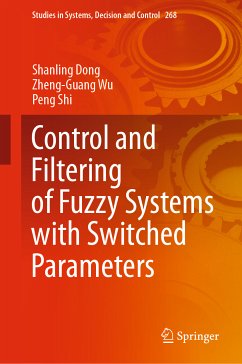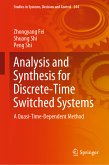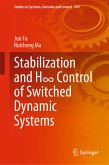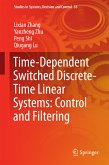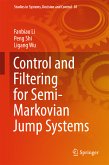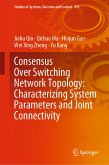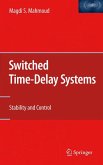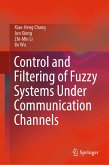This book presents recent advances in control and filter design for Takagi-Sugeno (T-S) fuzzy systems with switched parameters. Thanks to its powerful ability in transforming complicated nonlinear systems into a set of linear subsystems, the T-S fuzzy model has received considerable attention from those the field of control science and engineering. Typical applications of T-S fuzzy systems include communication networks, and mechanical and power electronics systems. Practical systems often experience abrupt variations in their parameters or structures due to outside disturbances or component failures, and random switching mechanisms have been used to model these stochastic changes, such as the Markov jump principle.
There are three general types of controller/filter for fuzzy Markov jump systems: mode-independent, mode-dependent and asynchronous. Mode-independence does not focus on whether modes are accessible and ignores partially usefulmode information, which results in some conservatism. The mode-dependent design approach relies on timely, complete and correct information regarding the mode of the studied plant. Factors like component failures and data dropouts often make it difficult to obtain exact mode messages, which further make the mode-dependent controllers/filters less useful. Recently, to overcome these issues, researchers have focused on asynchronous techniques. Asynchronous modes are accessed by observing the original systems based on certain probabilities. The book investigates the problems associated with controller/filter design for all three types.
It also considers various networked constraints, such as data dropouts and time delays, and analyzes the performances of the systems based on Lyapunov function and matrix inequality techniques, including the stochastic stability, dissipativity, and $H_\infty$. The book not only shows how these approaches solve the control and filtering problems effectively, but also offers potential meaningful research directions and ideas.
Covering a variety of fields, including continuous-time and discrete-time Markov processes, fuzzy systems, robust control, and filter design problems, the book is primarily intended for researchers in system and control theory, and is also a valuable reference resource for graduate and undergraduate students. Further, it provides cases of fuzzy control problems that are of interest to scientists, engineers and researchers in the field of intelligent control. Lastly it is useful for advanced courses focusing on fuzzy modeling, analysis, and control.
Dieser Download kann aus rechtlichen Gründen nur mit Rechnungsadresse in A, B, BG, CY, CZ, D, DK, EW, E, FIN, F, GR, HR, H, IRL, I, LT, L, LR, M, NL, PL, P, R, S, SLO, SK ausgeliefert werden.

